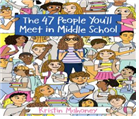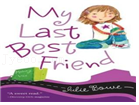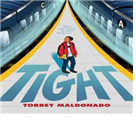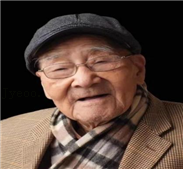



| Book List | |
 | The 47 People You'll Meet in Middle Schoolby Kristin MahoneyYou can get Gus's advice about growing. Funny and real, The 47 People You'll Meet in Middle School perfectly shows the growing pains and joys. |
 | My Last Best Friendby Julie BoweLosing a friend is hard at any age. After her best friend moves away, fourth﹣grader Ida May decides not to make another best friend. Author Julie Bowe gives advice about making new friends. |
 | Tightby Torrey MaldonadoIt may be hard for middle schoolers to make decisions. When his friend Mike forces him to accept the foolish ideas, Bryan doesn't know how to do. So Bryan looks to his comic book superheroes to guide him down the right path. |
 | His Dark Materials Seriesby Philip PullmanA city hidden in the Northern Lights and the mystery of disappearing children make His Dark Materials an amazing series. This fantasy pulls you into a universe (or several)beyond your imagination. |

| Dear Miss Yang, I know the English contest will be held next week. I'm writing to apply for the job as a host. __________________________________________________________________________________________________________________ Thank you for your time and consideration. And I'm looking forward to your reply. Sincerely, Li Hua |
| Living without a goal is like sailing(航行)without a compass. |